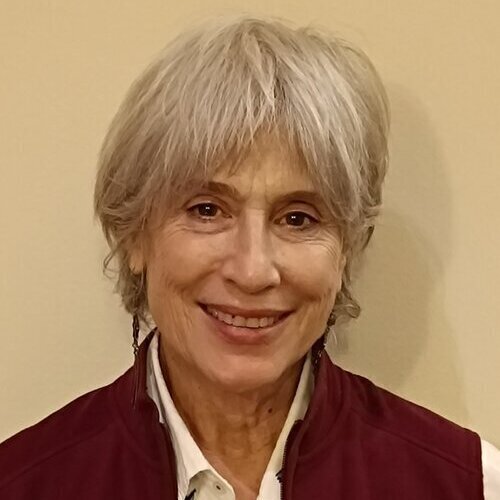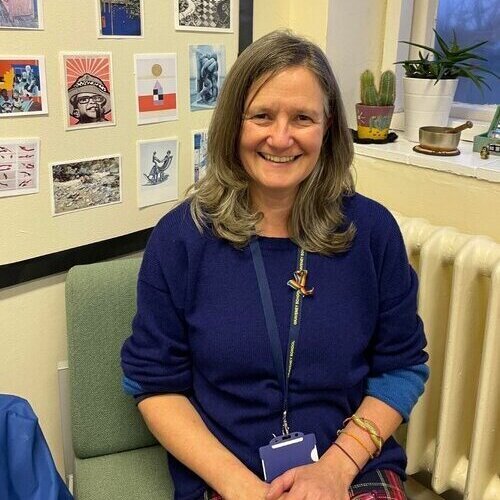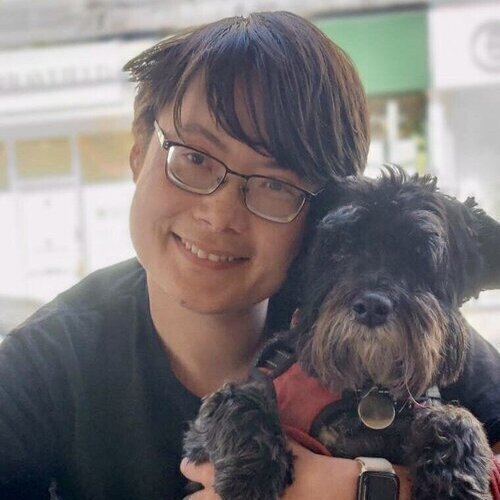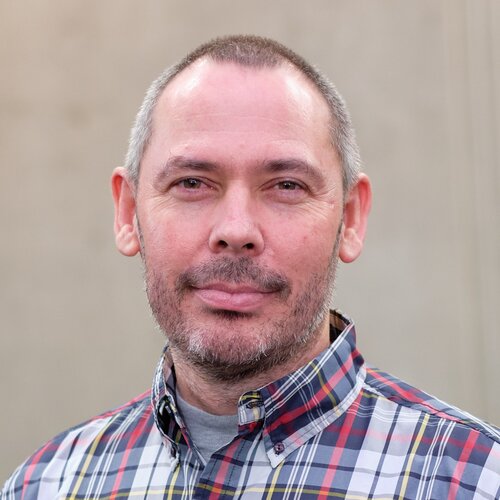We are honoured that Marina Iossifides, Suzanne Keys, Sonny Hallett and Brian Rodgers have agreed to be keynote speakers. Find out more about our speakers below:
We are honoured that Marina Iossifides, Suzanne Keys, Sonny Hallett and Brian Rodgers have agreed to be keynote speakers. Find out more about our speakers below:

I am Person-Centred counsellor affiliated with ICPS (College for Humanistic Sciences) in Athens, Greece. I was born in the United States and am of Greek parentage. I was awarded my BA in 1982 in Cultural Anthropology, from the University of Chicago. In 1983 I moved to London completing my Masters (1984) and PhD (1990) at the London School of Economics in Social Anthropology. In 1990 I moved to Greece working as a lecturer of Anthropology from 1990 until 2000 at the University of the Aegean, and Panteion University, Athens.
I re-trained as a Person Centred Counsellor at TCPCA Athens (now ICPS) receiving my Diploma in Counselling from the University of Strathclyde in 2004. In 2017 I completed Natalie Rogers’ program in the Person-Centred Expressive Arts. I work as a trainer, therapist, and supervisor with ICPS and have presented papers and published a few articles in both fields.
ABSTRACT: This paper has two objectives. The first is to offer a brief overview of how the socio-economic upheavals since 2008 have affected the private person-centred-experiential (PCE) training centres in Greece, focusing primarily on the transformation of the programs offered by ICPS. I will talk about our increasing awareness that the effects of global crises such as climate change, political and social radicalization, and forced migrations are issues demanding our attention as trainers, facilitators, and counsellor/therapists. Secondly, as an Expressive Arts Facilitator I will discuss how I have used my training not only in therapy sessions but also to develop workshops within training programs to help trainee therapists give voice and share their personal, professional, and social concerns. I will share my experiences of offering, with a colleague, PCE/Creative Arts workshops and group encounters both in person and online for the continued professional and personal development of practicing therapists and the creation of communities of practice. In both contexts the common experience of creating and sharing one's work gives participants the space to express subsumed feelings or thoughts, to share resources, experiences and stories, to imagine possibilities, to find common ground and hopefully build a sense of belonging.

Suzanne has worked as a person-centred practitioner since 1997 in private practice and educational settings with young people in London, UK. Over the years she's delivered workshops for person-centred colleagues all over Europe and in 1998 represented the British Association for Person-Centred Approach at the inaugural meeting in Luxembourg of the network now known as PCE Europe. She can also remember staying up late into the night working with colleagues on the first statutes of the PCE World Association in Chicago 2000.
She spent many years as part of the organising group for Psychotherapists and Counsellors for Social Responsibility involved in the political activism of therapy and currently co-facilitates their regular open encounter group on Examining Whiteness.
She has written articles and chapters and edited books and special issues of the PCEP journal on ethics, gender, ecotherapy, young people, disability, spirituality, human rights, idiosyncratic practice and her experience of training. Her taxonomy of love in person-centred therapy was published in BACP's Therapy Today in 2017.
ABSTRACT: My school counselling room is messy: full of resources that get used and changed with every young person who comes in. Nothing stays the same, we impact each other and we're in this messy world together.
This talk will explore the mess we're in and how focusing on Rogers' 'definable climate of facilitative psychological attitudes' can 'tap into vast resources', liberating creative energy for change, growth, healing and transformation. This model of abundance rather than scarcity, potential rather than deficiency, incongruence rather than pathology and gift rather than commodity economy defines growth as non-exploitative, emergent, organismic and always relational.
Relationship with self, other, world means understanding how societal conditions of worth (including racialised, gendered, allistic, able-bodied, straight, heteronormative) create incongruence and anxiety. The person-centred approach to relationship is non-directive so egalitarian, non-hierarchical and anti-oppressive. This means a lot of work to decolonise our psyches: being aware of our social positioning and intersectional identities within power dynamics and replacing hierarchies that put humans at the top with an eco-centred model.
Becoming persons is a relational process dependent on certain conditions. As a psychotherapist my primary aim is to be available to people relationally, creating conditions together where we can connect and disconnect, be in and out of contact and become more congruent. This does not mean fitting in with a system which is harmful, where distress is pathologised and individuals need fixing. But rather being honest about the mess we're in, discovering our ecological niches and not being afraid of loving. Young people talk about love in counselling as being seen, heard and cared for. My taxonomy of love is my way of understanding what emerges spiritually, physically, politically and ethically from the interplay of Rogers' 6 relational conditions. Likewise, it helps me understand how harmful and abusive disregard, rejection, exploitation, neglect, domination and appropriation are, inter- and intra-personally as well as systemically.
My talk is based on my work as a therapist, supervisor and trainer (especially the playfulness, creativity and resourcefulness of young people within hostile environments); my experiences in community and encounter groups; person-centred colleagues (especially those who've taught me about the political, spiritual and relational); eco therapy colleagues who've broadened my horizons, black feminist theoreticians who've inspired me on love, liberation and solidarity; Christian spirituality and Islamic psychology where healing heart and soul as well as mind is acknowledged; and finally art and music that sustain me in the mess.

Sonny Hallett is a Person Centred therapist, supervisor, and trainer, based in Edinburgh, UK, where they work in private practice predominantly with clients who straddle the intersections between neurodivergent, disabled, queer, and racial and ethnic minorities.
They are a co-founder and former chair of AMASE (Autistic Mutual Aid Society Edinburgh), and write and contribute to research on the experiences of minoritised populations. They also draw a lot on their own experience in their work and writing, as a trans, autistic, mixed race person who grew up travelling between the two very contrasting cultures of China and the UK.
They are particularly interested in the ways in which therapy can both challenge and reinforce normative and oppressive expectations, and how humans can understand each other better across gulfs of difference and complexity.
ABSTRACT: The person-centred approach is grounded in the idea that we thrive through realness, congruence, and trusting of an individual’s experience. Therapy training, however, can often feel intensely un-trusting, implicitly demanding incongruence - something which particularly impacts trainees from minoritised backgrounds. When trainees can’t find ways to be themselves and also meet the assessment criteria, they risk difficulty, dropping out, even finding the training process traumatic. This isn’t just a ‘diversity and inclusion’ problem— it’s harmful to the profession as a whole, with impacts on all trainees, therapists, and clients, as we carry these pressures on into our practices and ways of being as person-centred therapists, and pass them on to our colleagues and clients.
This keynote will explore how the conditions in training shape the therapists we become, and by extension, the spaces we make for our clients and communities. I argue that diversity isn’t the problem. Instead, the discomfort that institutions and trainee cohorts feel around difference is a symptom of how deeply ingrained normative expectations can be. The resistance to diversity, equity, and inclusion, shown so starkly in the news every day, I think comes from an anxiety about the loss of dominance of normative ‘standards’ for how to be: uncertainty about the many ways of being a person - and indeed a therapist. Real person-centred practice requires courage: a willingness to be present with uncertainty and fear, and to embrace difference. Without active challenge, our trainings will inevitably reflect the same normative pressures present in wider society, and our therapy practices will unwittingly reinforce it. Training, therapy, and communities of practice become difficult and constraining places for growth, when they could be so growth-promoting and expansive.
As a neurodivergent, trans, mixed-race therapist and supervisor, I draw on my own experiences—as a trainee who navigated these difficult waters, and now as someone who helps others through them. If we are serious about person-centred practice, we have to ensure that our trainings and communities are spaces where every student and colleague can develop their own idiosyncratic, congruent ways of working. If we want diverse cohorts and communities of practice, we need to be able to imagine more diverse ways of being a therapist, and to welcome that into our trainings and practice.

Brian Rodgers is a senior lecturer and programme director for the counsellor education programmes at the University of Auckland, Aotearoa New Zealand. Brian has been involved with counsellor education over the last two decades at a number of institutions including Auckland University of Technology, University of Queensland in Australia, and University of Strathclyde in Glasgow, Scotland. He is a past Chair of PCE World (the World Association for Person Centered & Experiential Psychotherapy & Counseling), and was chair of the scientific committee for PCE 2021 in Auckland.
Brian’s research interests include person-centred and experiential counselling, pluralistic practice, client directed and outcome informed practice, integration of research into practice, client’s experience of therapy/research, technology and counselling/psychotherapy, bi-cultural approaches to counselling/psychotherapy, collaborative learning and counsellor education.
ABSTRACT: This keynote speech aims to stimulate discussion around, and to challenge, some underlying aspects of the symposium theme of growing in difficult and challenging places. Specifically, I will discuss various problems related to framing the actualising tendency as “growth”, and how this can be both theoretically and therapeutically limiting.
Rogers' actualising tendency is a profound concept with multiple layers of meaning. At an individual level, it is framed as a basic tendency of all living beings to maintain and enhance the experiencing organism (Rogers, 1951). On a broader systemic level, Rogers (1980) related it to a universal formative directional tendency towards greater levels of order, complexity and inter relatedness. References to “growth” are particularly evident through Rogers’ (1980) use of the analogy of sprouting potatoes in the attic striving to reach toward light from a distant window. This visceral image of life “striving to become” under adverse conditions nicely echoes the conference theme of growing in difficult and challenging places.
While evocative, this conceptualisation of the actualising tendency has unhelpful associations with problematic colonial and capitalist narratives around expansion and perpetual growth. Entrenched within Western world views, and amplified by contemporary economic imperatives, perpetual growth relies on a decoupling of what is grown from the resources that sustain the growth. Drawing on Rogers' potato analogy, the sprouts “striving to become” are decontextualised from all that has led them to be there, as well as being dissociated from their inevitable withering and death.
Contrasting with this Western view, various indigenous and Eastern world views conceptualise growth in more intra-connected and cyclical ways. These different ontologies of growth have the potential to fundamentally influence how we see theory and practice. Far from being an abstract idea, I argue that this has a significant influence on what happens in the therapy room, including how we see clients’ problems and what we direct our attention to in sessions, and may provide new opportunities to work with the difficulties and challenges we face in an ever-changing world.